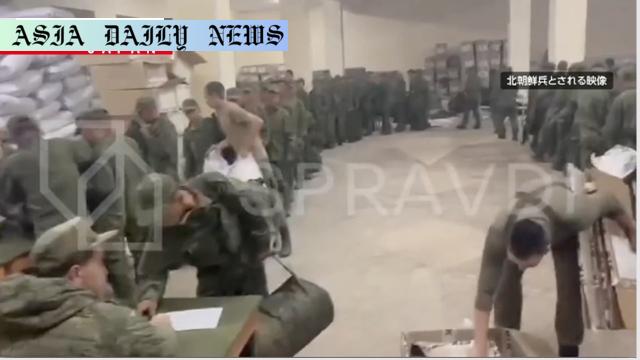North Korean Troops: Heavy Casualties and Absence Since Mid-January in Kursk
North Korea deployed around 11,000 troops to Russia’s Kursk region.
Since mid-January, these forces appear absent from combat operations.
South Korea’s spy agency attributes this to over 3,000 casualties.
The S.Korean military suspects North Korea may send reinforcements.

Introduction
In a significant development, it has been reported that North Korean troops, who were deployed to bolster Russian forces in the conflicted region of Kursk, are absent from combat operations since mid-January. South Korea’s National Intelligence Service (NIS) attributes this absence to heavy casualties sustained by the North Korean personnel, which are estimated to exceed 3,000 in number. This alarming figure raises important questions about North Korea’s involvement in the ongoing war and the implications for global geopolitics.
The Role of North Korean Troops in Kursk
North Korea reportedly sent approximately 11,000 troops to support Russian military efforts, likely as part of an agreement aimed at strengthening Pyongyang’s ties with Moscow. While details about their specific roles remain sparse, these troops were believed to be directly engaged in combat in the western sector of Kursk. Their deployment marked a rare instance of North Korea taking such overt action on foreign soil, stirring significant concerns in the international community regarding the potential for increased North Korean militarization and destabilization.
The Heavy Toll of Battle
According to the South Korean NIS, the North Korean contingent suffered devastating casualties, with over 3,000 troops either killed or seriously injured. This toll not only represents a human tragedy but also highlights the intensity of the conflict in Kursk. The loss of manpower is likely one of the key factors behind the reported absence of North Korean forces from combat since mid-January. The high casualty rate has reportedly forced a reevaluation of North Korea’s strategy and approach to its involvement in the conflict.
South Korean and Ukrainian Observations
South Korean officials have maintained a close eye on the situation. The South Korean military anticipates that Pyongyang may send reinforcements, indicating that North Korea is not withdrawing its support for Russia despite the heavy losses already suffered. Meanwhile, Ukrainian sources noted the absence of North Korean troops from the region for the past several weeks, aligning with South Korean intelligence reports. This notable absence underscores the potential challenges faced by both North Korean and Russian forces operating under extreme conditions.
Geopolitical Implications
The deployment and subsequent casualties of North Korean troops in Russia mark a pivotal moment in international relations. By actively partnering with Russia, North Korea risks alienating itself further from the international community. The move reflects Pyongyang’s prioritization of strategic alliances with powers opposing the West, particularly as North Korea faces ongoing economic sanctions and diplomatic isolation. For South Korea and other nations in the region, this development reinforces concerns regarding North Korea’s militaristic ambitions and its potential impact on regional stability.
Conclusion
The absence of North Korean troops in Kursk following a reported 3,000 casualties underscores the brutal cost of war and the challenges faced by foreign forces engaged in the conflict. While the situation remains fluid, the implications of North Korea’s involvement on this scale are profound, warranting continued monitoring and analysis by the global community. Insight into such developments is crucial for understanding the broader geopolitical dynamics at play in this complex and evolving conflict.
Commentary
The Risks of Foreign Involvement
North Korea’s alleged deployment of troops to support Russian forces in Ukraine is a bold and risky move. This action not only exposes the country’s soldiers to the perils of combat in a foreign land but also opens Pyongyang to significant international scrutiny. The casualties experienced in Kursk raise questions about the costs North Korea is willing to bear in its quest for power and influence. This incident reminds us of the high stakes involved when nations involve themselves in overseas conflicts, often with dire consequences.
Geopolitical Alliances in Flux
The growing alignment between North Korea and Russia signals a shift in global alliances. As both nations face increasing tensions and sanctions from the West, their collaboration reflects a strategy of mutual support against shared adversaries. However, this partnership can have far-reaching ramifications. By standing with Russia, North Korea further isolates itself on the global stage, potentially deepening its dependence on a tumultuous partner. This evolving alliance is a development that the international community cannot ignore.
The Human Cost of Conflict
The estimated figure of 3,000 North Korean casualties is a stark reminder of the tragic toll of war. These numbers represent lives lost and families forever changed, underscoring the human cost of geopolitical maneuvering. For North Korea, these losses may be seen as a necessary price for deepening ties with Russia, but for the families involved, the impacts are immeasurable. Such devastating effects should prompt serious reflection on the part of global leaders as they consider the consequences of prolonged and escalated conflicts.


